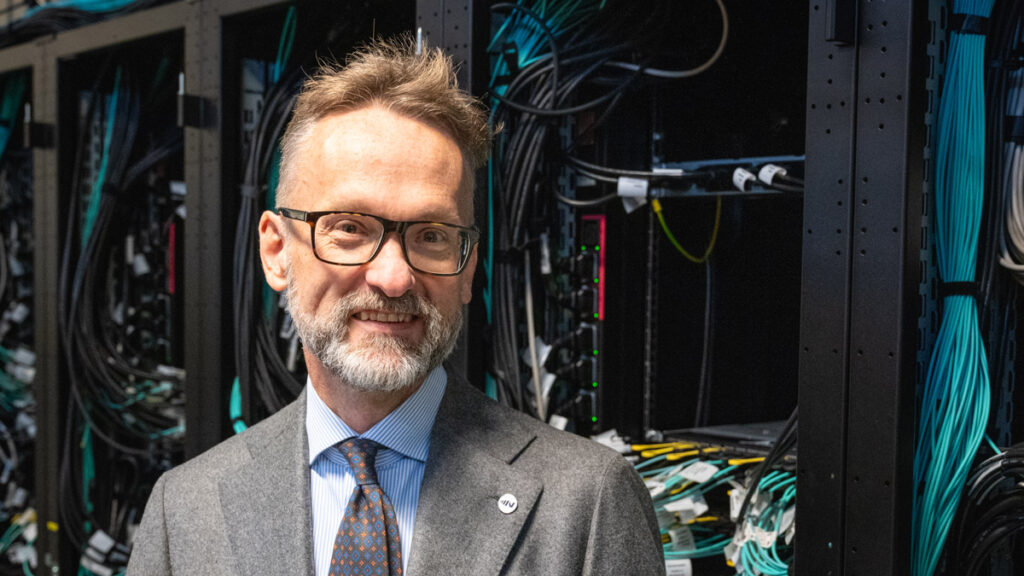Erik Lindahl appointed new Director of NAISS
Linköping University has appointed Professor Erik Lindahl as new director of NAISS. He will assume his position on 1 January 2025. “I’m very much looking forward to doing this, but it was a tough decision,” he says.

12 November 2024
Erik Lindahl is Professor of Biophysics at Stockholm University and currently located to SciLifeLab, a joint research environment shared between Stockholm University, KTH Royal Institute of Technology, and Karolinska Institutet.
He is also a member of the NAISS Steering Committee and has a thorough background in Swedish and European supercomputing. He was involved in establishing PRACE (Partnership for Advanced Computing in Europe, the precursor to EuroHPC Joint Undertaking), and his team has developed GROMACS, one of the world’s most widely used research codes on HPC resources.
Pivotal investments in computing and AI
When he was asked to consider the NAISS position he was reluctant at first, but gradually warmed to the idea during discussions with Linköping University Vice-Chancellor Jan-Ingvar Jönsson.
“My agenda does not exactly have a lot of open slots, and I have the privilege of leading a research team so brilliant I feel humbled to work alongside them. However, the massive investments in computing and AI now happening in Sweden are pivotal both for science and society. It is exactly what researchers – myself included – have long argued for,” says Erik Lindahl.
“We are deeply grateful for strong backing by the Swedish Research Council, the Swedish government, EuroHPC JU, the Knut & Alice Wallenberg Foundation, and others. We are increasingly seeing both university partners and infrastructures joining to co-fund resources both for hardware and expertise. At some point, we all need to step up and do our part.”
Getting Swedish researchers to use European resources
He is optimistic about the potential that comes with the new supercomputer Arrhenius, and a tighter integration with EuroHPC JU. NAISS has enormous strengths and expertise to share with Europe.
“But for me it is also about getting more Swedish researchers, businesses and agencies to use the fantastic resources available to them throughout Europe – both hardware and expertise. This is one of the things that I’m most excited about going forward.”
A major challenge for NAISS is to deploy the new support organisation so that users experience a single national organisation. Erik Lindahl is adamant that all users must have access to high-quality support, regardless of field, prior computing experience, or physical location.
Investments in AI to achieve scientific breakthroughs
He also believes that NAISS has an important duty to ensure that expensive resources are used as efficiently as possible, to prioritise scientific excellence and help put Swedish groups in the lead when it comes to scientific computing.
“AI presents great opportunities for researchers, but it is also disrupting paradigms we have long taken for granted, which will pose challenges. NAISS will need to invest in training and research software engineers to help Swedish researchers exploit AI to achieve scientific breakthroughs. This is a strategic agenda our users need to be involved in prioritising. Talking more directly to them all across Sweden is one of my first tasks.”
As Erik Lindahl takes up the directorship, he will scale back commitments in Stockholm. His employment at Linköping University, which will be half-time, includes a professorship at the Department of Physics, Chemistry and Biology, and research at the Division for Media and Information Technology in Norrköping. Björn Alling will stay on as Deputy Director of NAISS to assist Erik Lindahl.